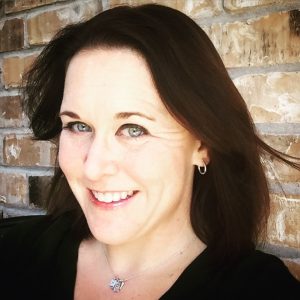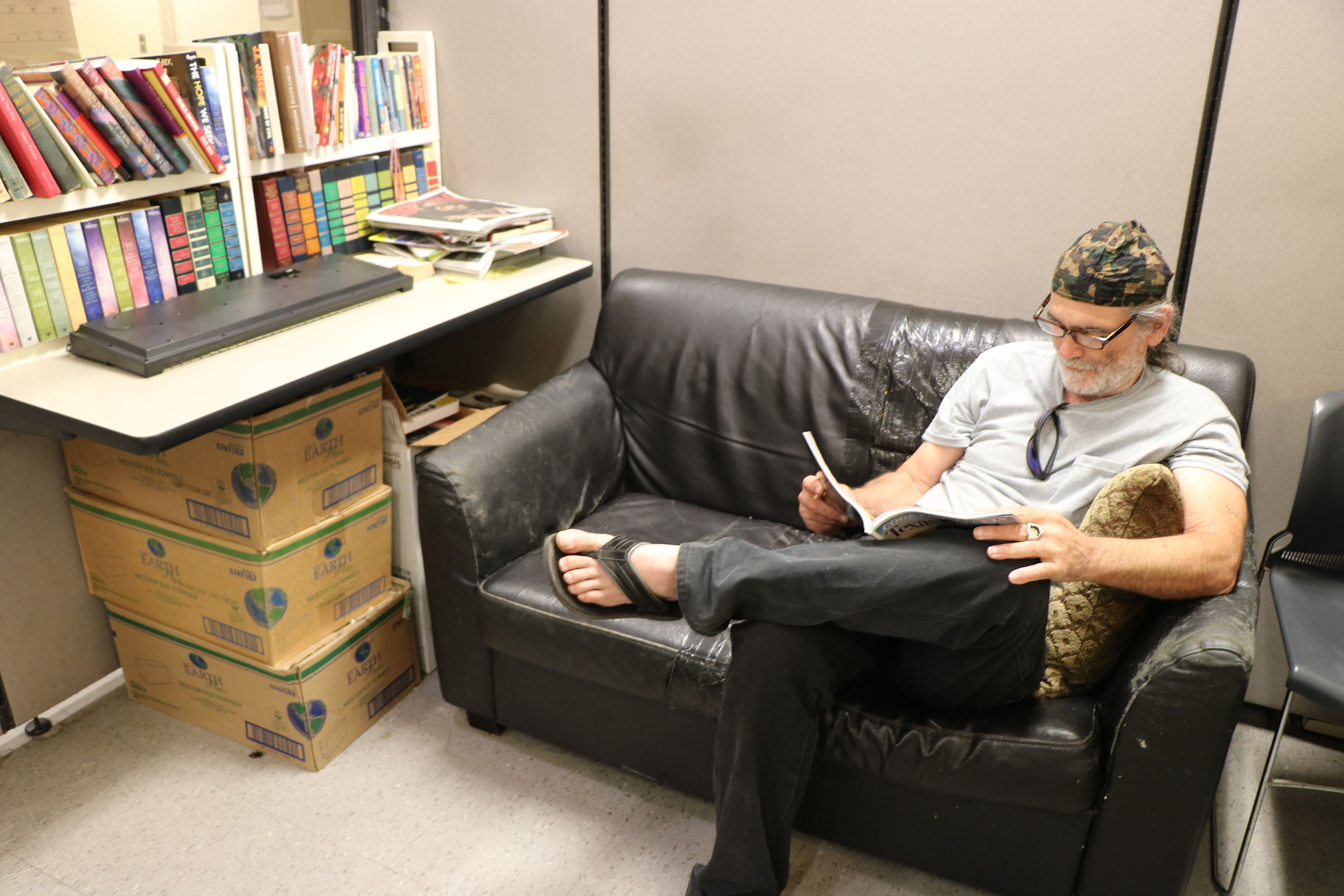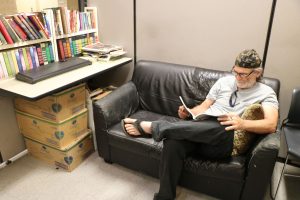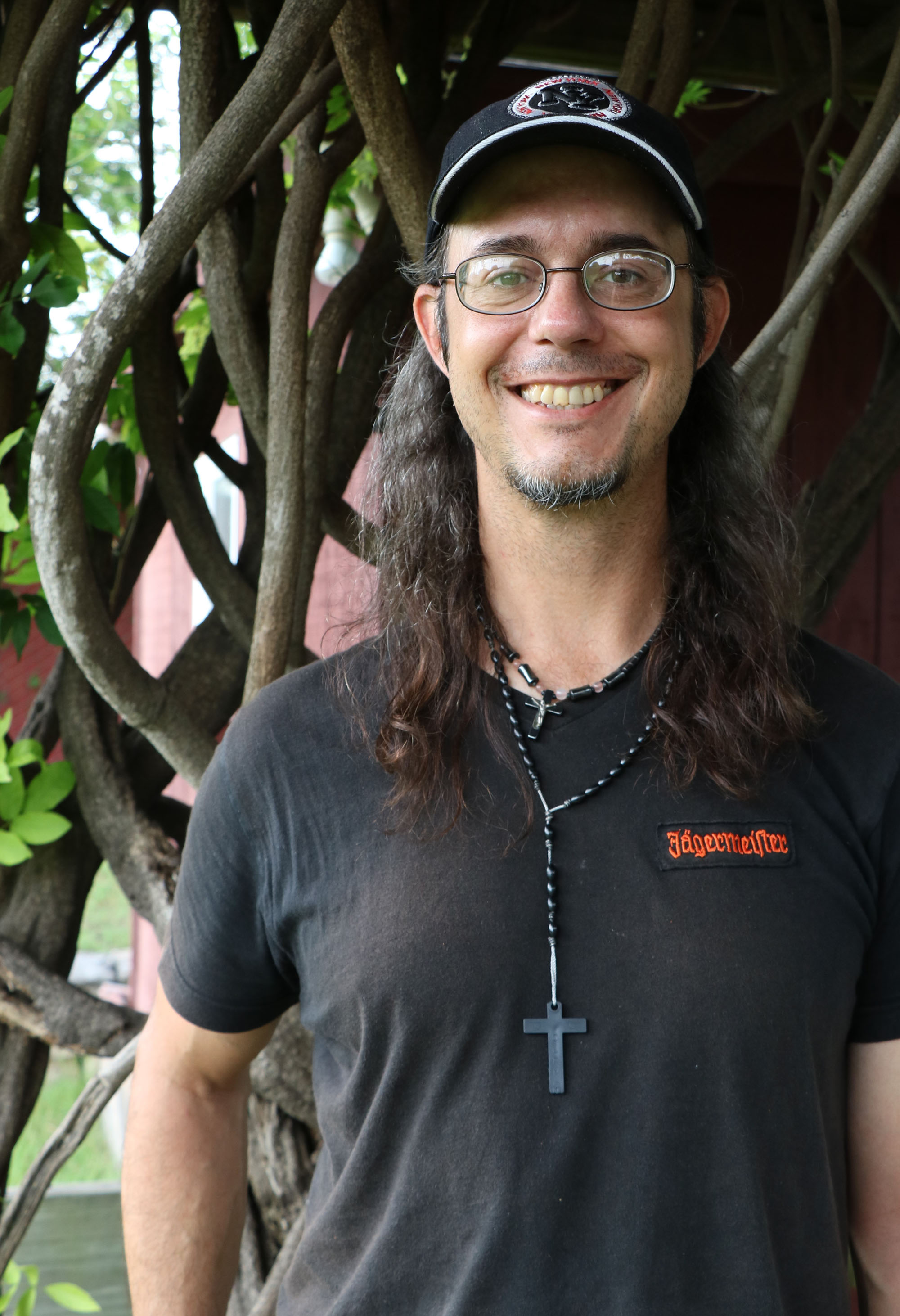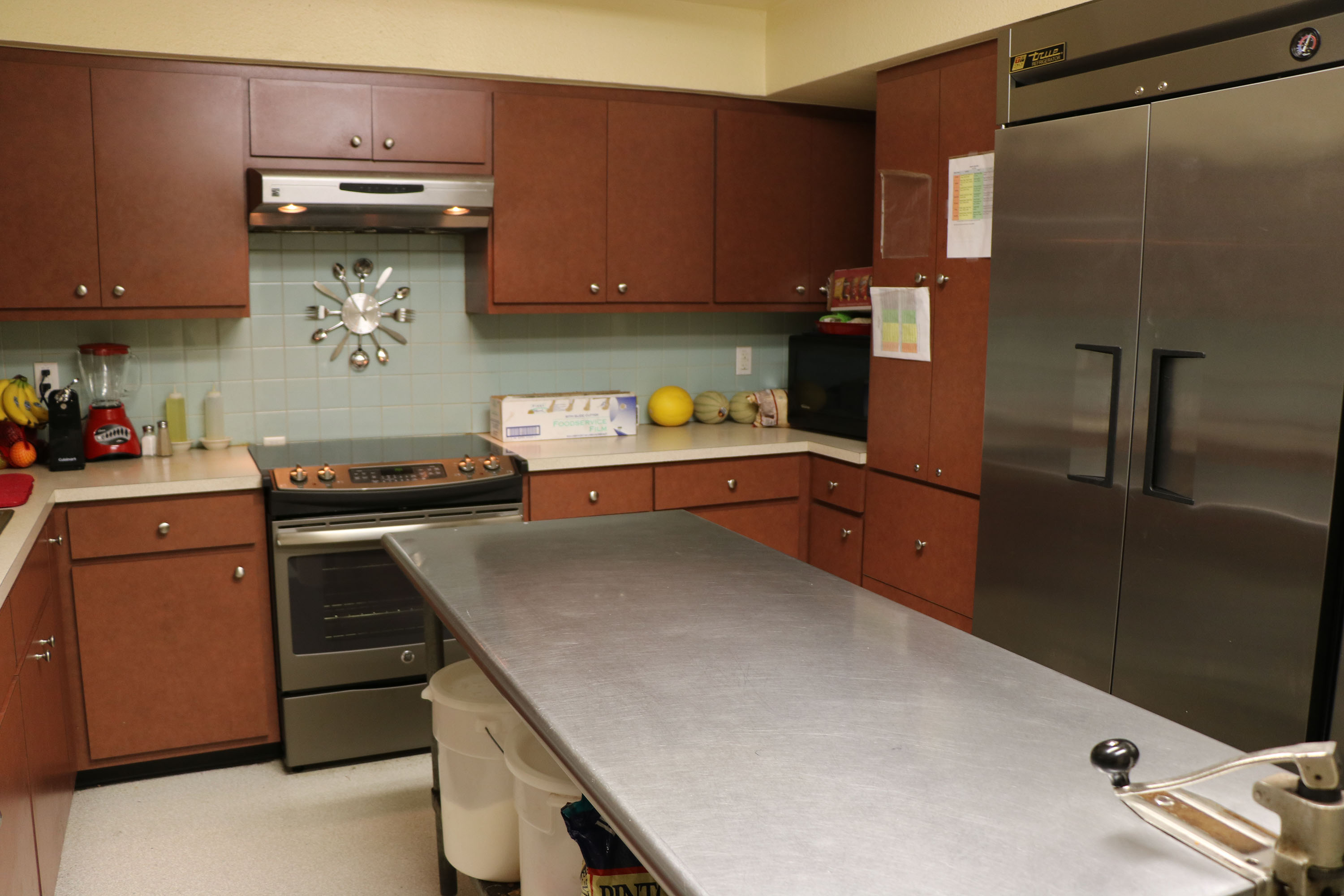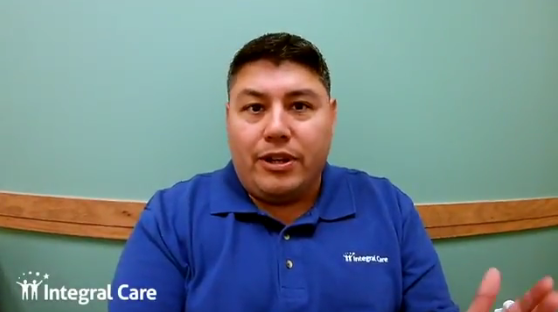We interviewed Rick at his new apartment to see how his life has changed since being housed.
“I committed to fighting addiction. It is a daily thing. I slip up a lot. I walk to the edge a lot, but I keep in check. I am hopeful for that one day. There are ways to beat addiction, you just have to try. You can do that when you have stability.”
Tell us a little bit about yourself.
I was born in Pennsylvania but grew up in Alabama. I went to high school and college in Alabama and was married there too. I studied drafting and engineering, got two years into my degree before I had to get back to work. I wanted to go to the University of Mississippi.
I suffer from addiction, depression and a host of other things. I have physical pain in my neck from old football injury. I have a plate in my neck and had a vertebrae removed. It was getting harder to work. When my physical health started deteriorating everything else started coming up. I got depressed from not being able to do what you used to do. All this started hitting me and it caused me to think back. I realized that I really needed to see a psychiatrist.
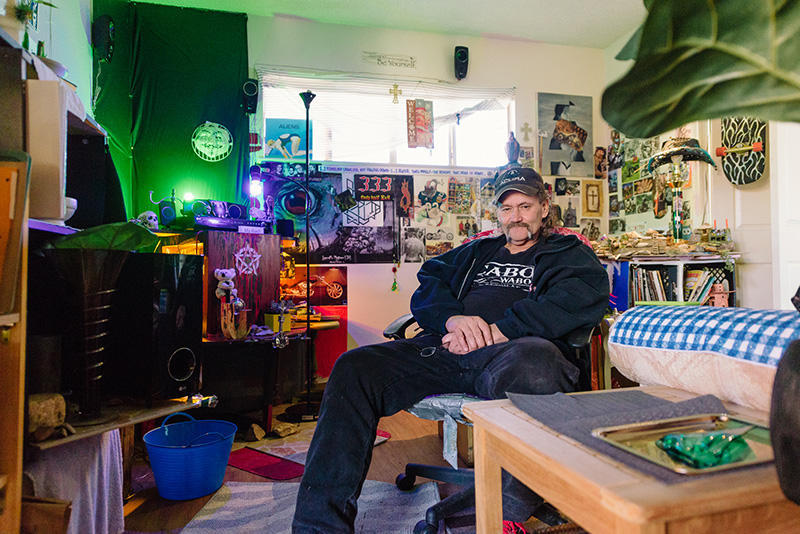
What brought you to Austin?
I had started seeing a psychiatrist in Alabama before I got into some trouble and spent one year in prison and six years on supervised probation. I didn’t know what I was going to do after I got out of prison. I heard about a fellowship church that helped men in my situation and took the discipleship program they offered.
After my mother died, my brother and I didn’t talk for six years. His wife reached out to me and got us talking again. He asked if I wanted to come out to Texas. I said yes and stayed with them for a while.
Then he got orders to serve in Korea so I moved on. I didn’t want to go back to Alabama. I talked to a carpenter friend whose mother lived in Austin. I moved to Austin in 2012.
I like Texas. It is as big as Birmingham but the crime and violence are nowhere near what it’s like in Birmingham. You don’t hear about that stuff here. Austin is a peaceful town. People will actually take the time to talk to you. Alabama brags on hospitality, but it’s not like that around the city areas.
How did you get connected to Integral Care Services?
I was at the ARCH before I became homeless for a while. I had never been homeless in my whole life. I did not like it at all. I worked with several case managers then I got my first apartment.
Do you feel like Integral Care’s programs and services helped you learn coping skills and get help?
My brother Dave committed suicide in front of me and that’s been a lifelong issue for me. This scar right here was from an attempted gunshot wound. I was shaking so much I missed. I guess there was a reason for that.
I became an intravenous drug user. It would have gotten worse. Drugs are everywhere. You aren’t going to escape them and you have to deal with them. I think about it every day but I don’t let it control my day. Now I go for walks. I would probably be dead now. I thank you guys for saving my life.
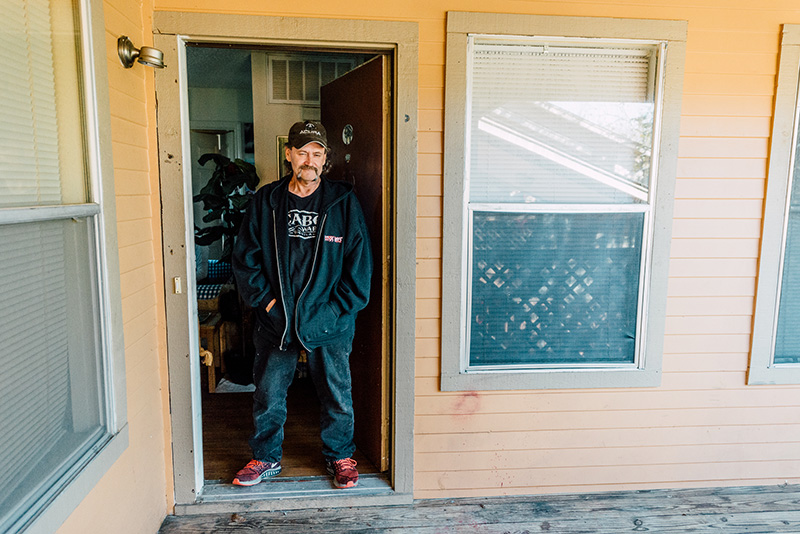
How do you feel now that you have your own space?
I am bi-polar. Sometimes I get into very dark depressed moods where I don’t care if I talk to anybody. I lose stuff all the time, don’t do paperwork. Sometimes I stay organized but it doesn’t last. It goes back and forth, but it is still a lot better. I am very thankful for what the ARCH has done for me but I needed to get out of there. Things started returning to normal. What Integral Care has helped me out with has saved my life.
What keeps you motivated to doing positive things and recover?
I’ve got some ideas about my art that come and go. I love fantasy art. I have always liked drawing and building models. I draft building sketches. I want a drafting table to do it the old school way. I also play bass guitar.
Now that you are here, what’s next?
I committed to fighting addiction. It is a daily thing. I slip up a lot. I walk to the edge a lot, but I keep in check. I am hopeful for that one day. There are ways to beat addiction, you just have to try. You can do that when you have stability.
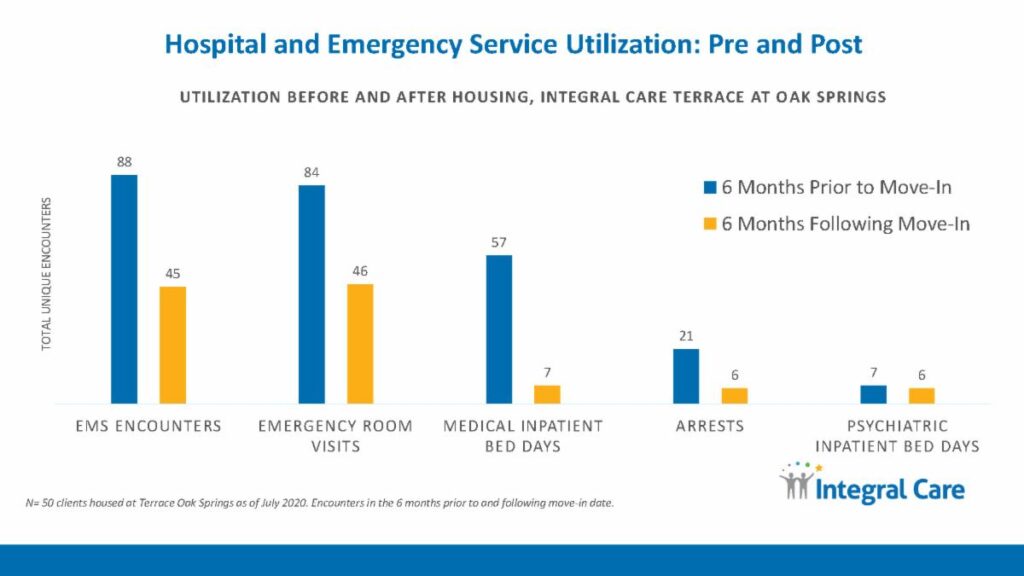
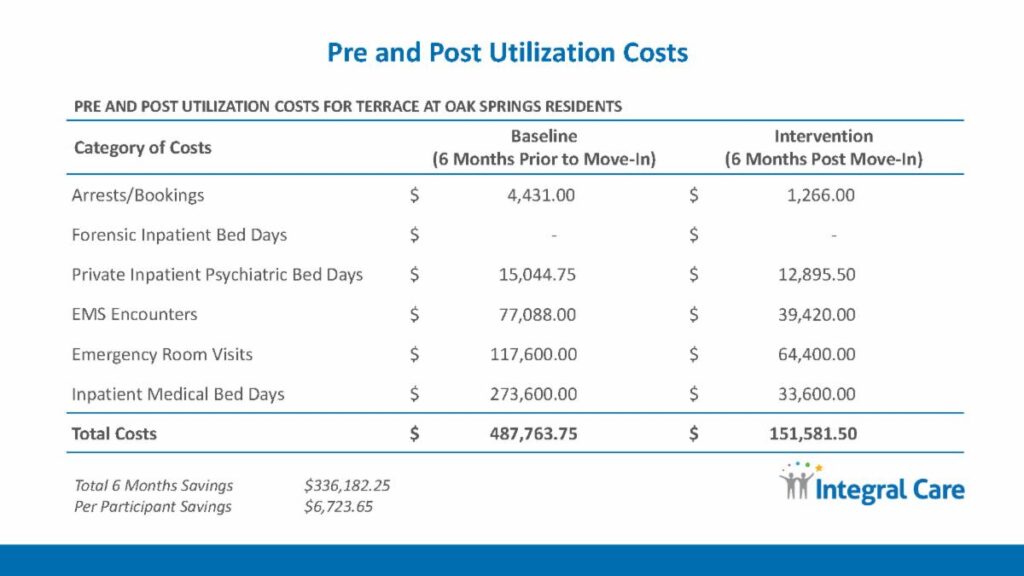
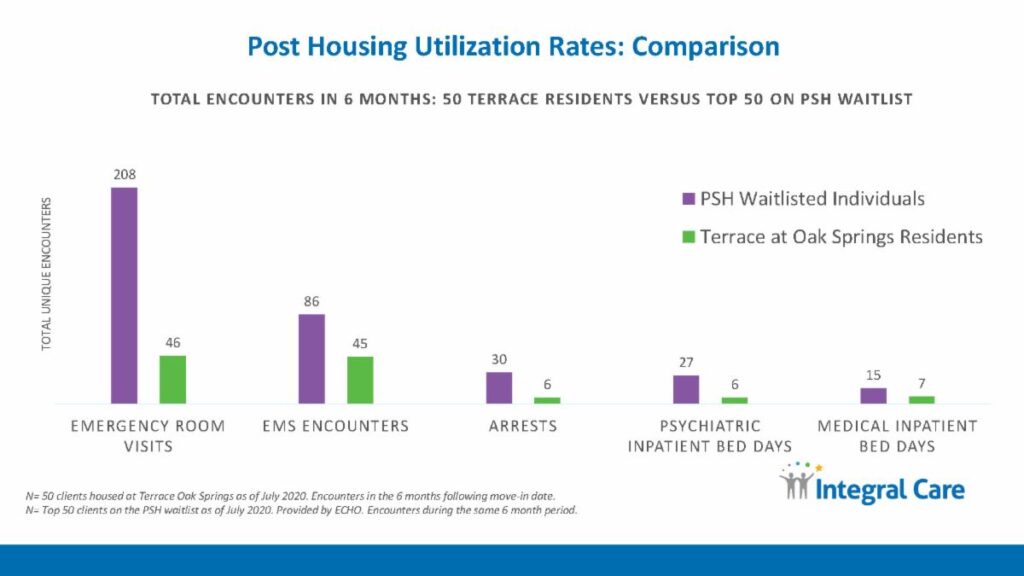
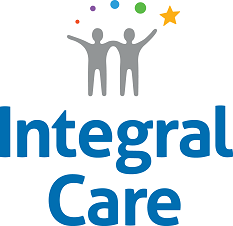

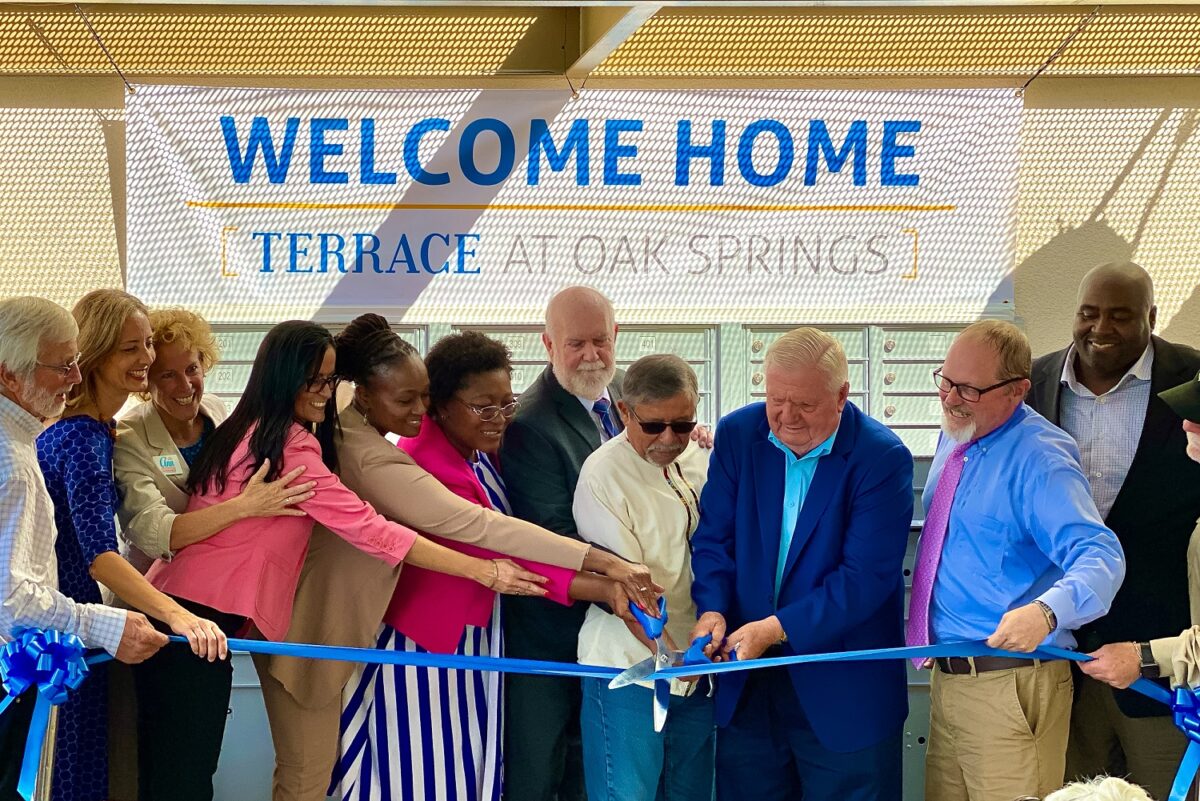
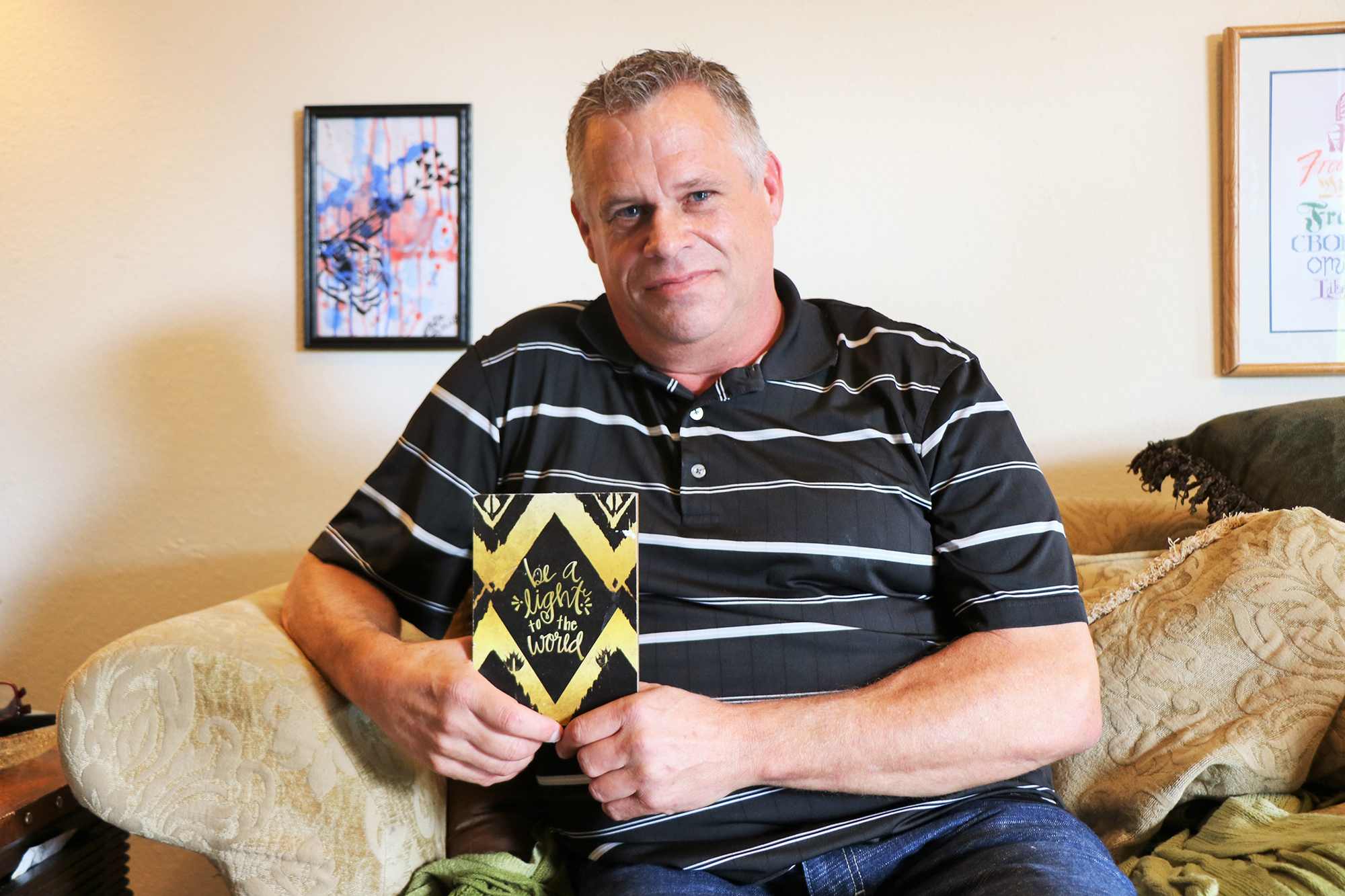
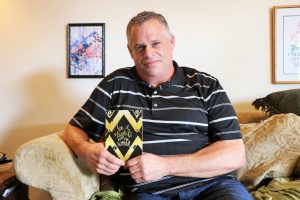 In the daytime, being homeless didn’t seem that bad. But come 5 or 6 o’clock in the evening, anxiety would set in around the reality of the situation – where are you gonna go, where are you gonna be safe? I did not want to be downtown. Because of the broken bone in my foot, I was taking narcotics and I just didn’t want to go there. I went out on the edge of town and made myself a campsite. Then I found a treehouse and I stayed there. If I hadn’t been so depressed, it would have been a much more spiritual experience! Some of my best friends that I’ve known for 20 years stopped answering my calls. I found more kindness from strangers in Austin than I did from others I thought should have been there for me.
In the daytime, being homeless didn’t seem that bad. But come 5 or 6 o’clock in the evening, anxiety would set in around the reality of the situation – where are you gonna go, where are you gonna be safe? I did not want to be downtown. Because of the broken bone in my foot, I was taking narcotics and I just didn’t want to go there. I went out on the edge of town and made myself a campsite. Then I found a treehouse and I stayed there. If I hadn’t been so depressed, it would have been a much more spiritual experience! Some of my best friends that I’ve known for 20 years stopped answering my calls. I found more kindness from strangers in Austin than I did from others I thought should have been there for me.